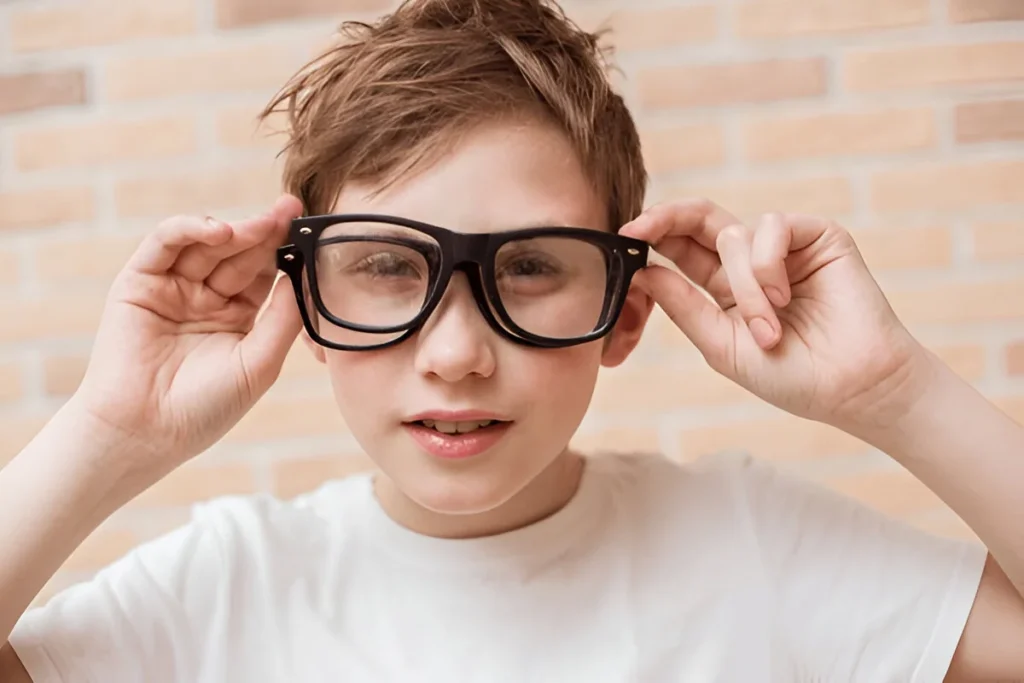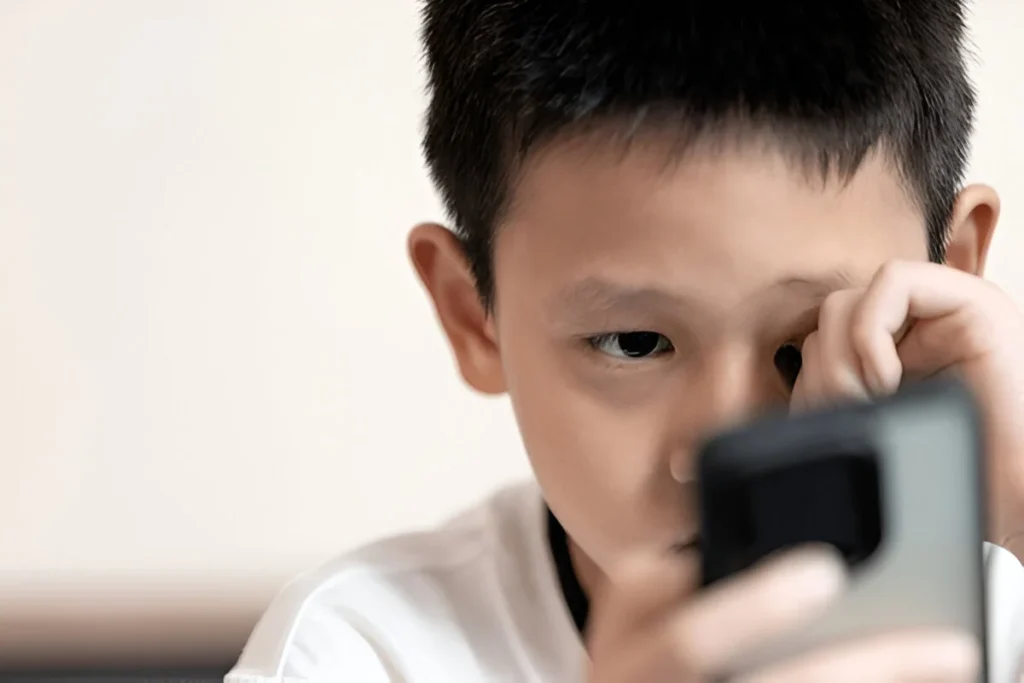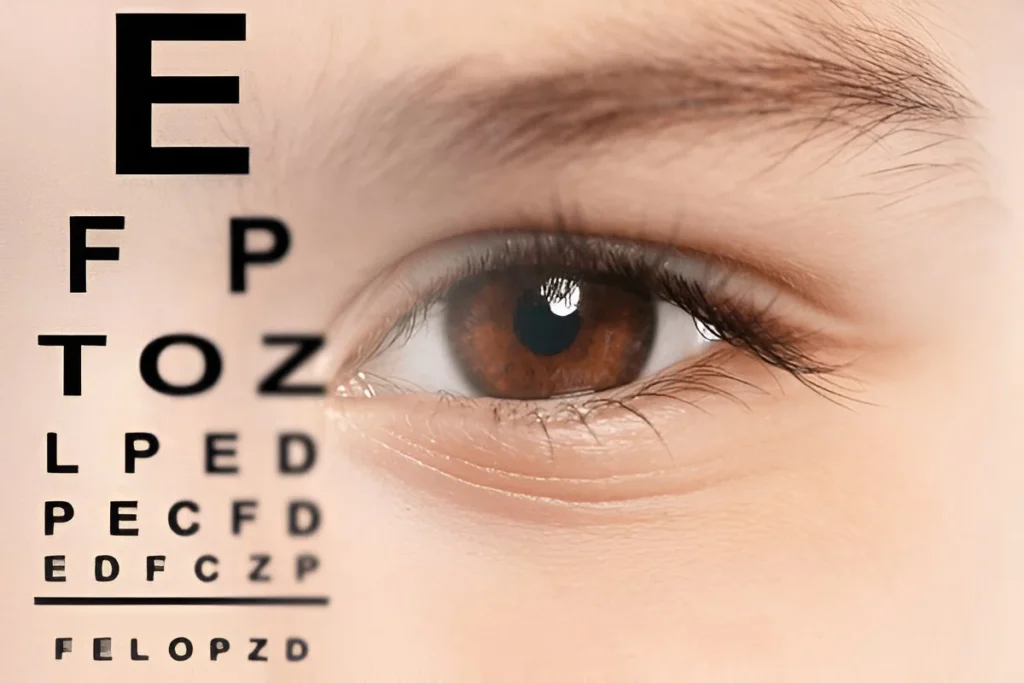Discover why Double Vision in Children occurs, its causes, symptoms, and treatments are explained by a reputed eye surgeon.
Understanding Double Vision in Children
Double vision, medically known as diplopia, is when a child perceives two images of a single object. While it may seem unusual, it is not always a sign of something severe. In some cases, double vision is temporary and harmless. But at other times, it may indicate underlying issues in the eyes, brain, or nervous system that require professional care.
Children may struggle to express what they see, making it difficult for parents to detect early signs. That is why awareness is the first step to protecting their vision.

Why Double Vision Happens in Children
Several factors can contribute to double vision in children. Some are minor, while others may signal deeper health concerns.
Common causes include:
- Refractive errors – when the eyes have focusing issues due to uncorrected vision problems.
- Strabismus (eye misalignment) – when both eyes do not move in coordination.
- Weak eye muscles – muscles that control eye movement may not function properly.
- Nerve problems – damage or pressure on the nerves controlling eye movement.
- Head injury – trauma can disturb eye coordination and cause temporary double vision.
- Neurological conditions – certain brain or nervous system disorders may trigger vision issues.
How to Recognize Double Vision in Children
Children often cannot explain what they are experiencing. Parents, teachers, and caregivers must stay alert to behavioral and physical cues.
Warning signs to look for:
- Tilting or turning the head to focus.
- Squinting or covering one eye frequently.
- Difficulty in reading, writing, or focusing on schoolwork.
- Complaints of headaches or eye strain.
- Sudden clumsiness or bumping into objects.
- Eye misalignment visible to others.
Possible Risks of Ignoring Double Vision in Children
Leaving double vision untreated may lead to long-term complications:
- Development of lazy eye (amblyopia).
- Poor depth perception, affecting sports and daily activities.
- Academic struggles due to vision discomfort.
- Delayed detection of underlying neurological conditions.
Timely evaluation ensures better chances of treatment and recovery.
Diagnosis of Double Vision in Children
Eye specialists follow a detailed approach to diagnosing the cause:
- Comprehensive eye examination with vision tests.
- Eye movement assessment to check muscle function.
- Neurological examination if nerve or brain involvement is suspected.
- Imaging tests (like MRI or CT scan) in cases linked to head trauma or neurological conditions.
Accurate diagnosis is key because the treatment depends entirely on the root cause.

Treatment Options for Double Vision in Children
Once the cause is identified, different treatment methods may be recommended.
Non-surgical options:
- Corrective glasses or contact lenses.
- Eye patches to strengthen weaker eyes.
- Vision therapy exercises to improve coordination.
- Prism lenses to redirect light and reduce double vision.
Medical or surgical options:
- Medication for underlying conditions (infections, inflammation, or neurological issues).
- Strabismus surgery to correct misalignment when non-surgical treatments don’t help.
- Treatment of nerve damage if present.
Every child’s condition is unique, so treatment must be personalized by an expert.
How Parents Can Support Their Child
Parents play a vital role in ensuring their child receives the right care.
- Encourage regular eye check-ups.
- Maintain a healthy diet rich in vitamin A, omega-3 fatty acids, and leafy greens.
- Limit excessive screen time to reduce strain.
- Stay alert to behavioral changes and seek help promptly.
- Follow through with prescribed treatments and therapies consistently.
Role of a Specialist in Managing Double Vision
When it comes to delicate conditions like double vision, expert evaluation is essential. A trusted specialist in both paediatric ophthalmology and neuro-ophthalmology has the skills to diagnose and manage these cases.
Parents looking for advanced care often turn to the Best Eye Surgeon in Kolkata, Dr. Tanmay Biswas, who has expertise in handling complex vision disorders in children. With specialized knowledge, accurate assessment, and modern treatment approaches, he provides guidance and care that make a real difference.

FAQs on Double Vision in Children
1. Is double vision in children always serious?
Not always. Sometimes it’s due to simple refractive errors. However, persistent double vision should always be checked by a specialist.
2. Can double vision in children go away on its own?
In mild cases, yes. But it should not be ignored, as underlying causes might need attention.
3. How do doctors detect the reason behind double vision?
Through a combination of eye exams, movement tests, and sometimes neurological imaging.
4. At what age should children start regular eye check-ups?
Screening is recommended from infancy, with regular check-ups during school years.
5. Can double vision affect a child’s school performance?
Yes. It can cause difficulty in reading, writing, and concentrating, often impacting learning.
Vision for a Better Tomorrow
Double Vision in Children may sound alarming, but with awareness, timely diagnosis, and the right treatment, children can enjoy healthy and clear vision again. Parents should never ignore subtle signs and should trust experienced specialists for guidance.
Dr. Tanmay Biswas provides expert care in paediatric and neuro-ophthalmology. His experience ensures that children receive personalized attention and solutions that address not just the symptoms but the root causes.
Healthy eyesight in childhood lays the foundation for a brighter, more confident future.

